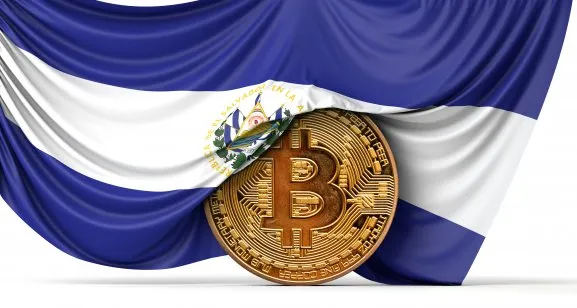|
| El Salvador etched its name in history as the first country to make such a move, and while not everyone was thrilled about it, especially the IMF, there have certainly been numerous positives surrounding this decision. BTC was trading at around $40,000 when it became legal currency there, if my memory serves me correctly. |
|
| Now, it's barely holding at $25k, and there are quite a few who believe even lower valuations are in store for Bitcoin. Time will tell about that. If you ask expats from El Salvador who send money back home through the Bitcoin network instead of Western Union, I doubt any of them are unhappy about the price. |
|
| These individuals now have access to more convenient money transfer services, and that's what truly matters. Whether they're sending $1,000 in BTC, it doesn't matter whether the price of one BTC is $25k or $50k. The transfer will be completed in a matter of minutes, and the funds will reach the recipients. It's true that fees fluctuate with the price, but I don't believe Western Union is a better option in this regard. |
|
|
 |
| image source |
|
| What about those who accepted Bitcoin for their goods and services and didn't sell? Well, these folks have certainly seen the value of their savings dip against the dollar, albeit temporarily. However, when you consider that over 80% of all US money creation (US Dollars printed) occurred between 2020 and 2023, holding Bitcoin seems more secure than holding dollars. |
|
| I bet there's not a single place in the world where the devaluation of the native currency isn't glaringly obvious, and it's by design. Every crisis (COVID, the Ukraine war, skyrocketing oil prices) was meticulously planned and executed, and it's us, regular folks who are definitely not billionaires, who are paying the price. |
|
| I used to say that Bitcoin was already a currency for the wealthy, but I retract that statement now. Bitcoin is, in fact, a currency for everyone. Well, so is DOGE, but Bitcoin is the digital gold 😉. We've endured over a year of restrictive fiscal policies applied to economies worldwide, and they still haven't managed to conquer inflation. |
|
| They probably won't be able to return to pre-COVID inflation levels, and when you begin to view money from this perspective, despite Bitcoin's volatility (one year down and three years up), holding Bitcoin or other robust altcoins is undeniably a better option than holding cash. I took the plunge a few months ago and went almost all in on crypto. |
|
| My finances now predominantly revolve around crypto, so I'm essentially backing my words with my money... |
|
| I wouldn't recommend this approach to anyone, but when you see how weak the purchasing power of nearly any currency in the world has become over the past 1.5 years, crypto certainly appears to be a better option, especially when you consider that the halving is less than a year away. Turkey is another example of a country grappling with inflation that "has to use Bitcoin." |
|
| More on that in a future post. Returning to El Salvador, while their Bitcoin reserves might still be in the red, in the long term, they'll fare better with Bitcoin than with American dollars. Furthermore, it's evident that Nayib understood the dynamics of adoption when he made Bitcoin legal tender instead of focusing on ETFs... |
|
| Thanks for your attention, |
| Adrian |
